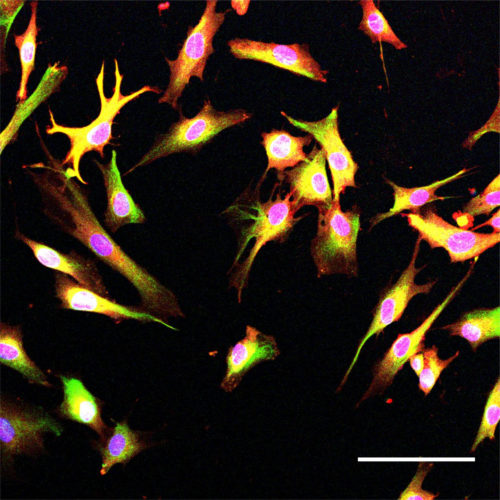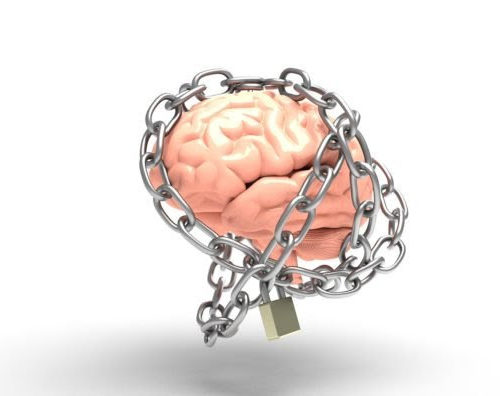PICOWER INSTITUTE AT MIT IMAGE: ASTROCYTES DERIVED FROM INDUCED PLURIPOTENT STEM CELLS WERE CENTRAL TO THE STUDY. In a new study, a team of scientists based at The Picower Institute for Learning and Memory at MIT and the Whitehead Institute for Biomedical Research reveals evidence showing that the most prominent Alzheimer’s disease risk gene may disrupt a...
Tag: <span>Alzheimers</span>
Evidence of Alzheimer’s, Parkinson’s and MND in brains of young people exposed to dirty air
by Lancaster University Researchers looking at the brainstems of children and young adults exposed lifelong to air pollution in Mexico City have discovered disturbing evidence of harm. Previous studies have linked fine particulate air pollution exposure with Alzheimer’s disease, and researchers have also reported evidence of air pollution-derived nanoparticles in the frontal cortex of the brain. But after examining...
Difficulty learning new things may be one of the earliest signs of Alzheimer’s
There is no cure for Alzheimer’s disease. And millions of people are going to get it, even though not everyone will hear the diagnosis. There are, however, some therapies that can slow down the progression of this neurodegenerative condition, but it has to be spotted early. Now scientists at the Monash University found that one...
Promising Alzheimer’s biomarker detected in eyes for the first time
By Rich Haridy, September 21, 2020 A protein associated with neurodegeneration, previously detected in blood samples, has now been found in eye fluid A protein, previously found to be an effective blood-based biomarker of neurodegenerative diseases such as Alzheimer’s, has for the first time been detected in the eye. The discovery lays the foundation for...
Heroin-addicted individuals have unique brain disturbances resembling those of Alzheimer’s
THE MOUNT SINAI HOSPITAL / MOUNT SINAI SCHOOL OF MEDICINE Corresponding Author: Yasmin Hurd, PhD, Director of The Addiction Institute of Mount Sinai, Icahn School of Medicine at Mount Sinai, New York, and other coauthors. Bottom Line: Herion-addicted individuals have alterations in the expression a gene called FYN – a gene known to regulate the...
Common drugs linked to increased risk of Alzheimer’s
A new study suggests anticholinergic medications may increase the risk of accelerated cognitive decline, especially in older adults at high risk of developing Alzheimer’s disease. SA recent study concludes that a common type of drug might accelerate cognitive decline. Anticholinergic drugs block the action of acetylcholine, a chemical messenger that controls a range of automatic...
new alteration in the brain of people with Alzheimer’s discovered
SPANISH NATIONAL RESEARCH COUNCIL (CSIC) Despite the important advances in research in recent years, the etiopathogenesis of Alzheimer’s disease is still not fully clarified. One of the key questions is to decipher why the production of beta amyloid, the protein that produces the toxic effect and triggers the pathology, increases in the brain of people...
Common class of drugs linked to increased risk of Alzheimer’s disease
UNIVERSITY OF CALIFORNIA – SAN DIEGO A team of scientists, led by researchers at University of California San Diego School of Medicine, report that a class of drugs used for a broad array of conditions, from allergies and colds to hypertension and urinary incontinence, may be associated with an increased risk of cognitive decline, particularly...
Keto diet may reduce Alzheimer’s risk by altering gut fungi
Scientists have found associations between fungi living in the gut and mild cognitive impairment, which can lead to Alzheimer’s disease. They suggest that a ketogenic diet could help prevent the disease by creating a more healthful balance of microorganisms in the gut. SA ketogenic diet may help cut the risk of Alzheimer’s by influencing the...
From the research lab to your doctor’s office – here’s what happens in phase 1, 2, 3 drug trials
For COVID-19, like all illnesses, the drugs and vaccines to treat or prevent the disease must be backed by rigorous evidence. Clinical trials are the source of this evidence. With vaccines and drugs for the coronavirus already entering human testing, it is important to know what the different phases of clinical trials are testing for....






